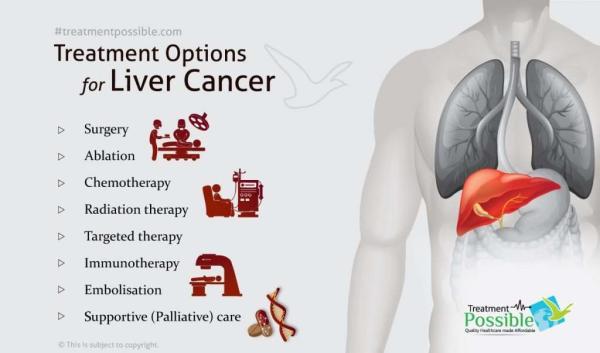| When discussing liver cancer treatment options with a healthcare professional, ask about the specific type and stage of your cancer, the different treatment approaches available (surgery, chemotherapy, radiation therapy, targeted therapy, immunotherapy, ablation, etc.), the potential benefits and risks of each, including side effects, the likely success rate and prognosis for your situation, the duration of treatment and follow-up care needed, the cost of treatment and insurance coverage, clinical trials that might be relevant, and whether palliative care is appropriate to manage symptoms and improve quality of life. Finally, ask for clarification of anything you don't understand and don't hesitate to seek a second opinion. 
When asking about treatment for liver cancer, it's crucial to be prepared and ask specific questions tailored to your individual situation. The best questions will depend on your diagnosis (stage, type of liver cancer, overall health), but here's a framework to help you: Understanding the Diagnosis & Prognosis:- What type of liver cancer do I have? (Hepatocellular carcinoma (HCC), cholangiocarcinoma, etc.) Knowing the specific type is vital because treatments vary.
- What stage is my cancer? (Stage I, II, III, IV) This determines the extent of the disease and influences treatment options.
- What is my prognosis? This is a difficult question, but understanding the likely course of the disease, with and without treatment, is important for planning. Ask for this information in a way that you understand – percentages of survival at different time points, or other metrics that make sense to you.
- What are the long-term implications of this cancer and its treatment? This includes potential side effects and impact on quality of life.
Treatment Options:- What are my treatment options? This is the central question. Get detailed explanations of each.
- What are the benefits and risks of each treatment option? Discuss potential side effects, both short-term and long-term, for each option. Ask for specific examples of side effects and their likelihood.
- What is the success rate of each treatment option for someone with my specific type and stage of liver cancer? Be realistic about expectations; success rates vary widely.
- Which treatment do you recommend, and why? Understand the reasoning behind the doctor's recommendation. Don't hesitate to ask for a second opinion if you feel unsure.
- Is surgery an option? If so, what type of surgery? What are the risks and recovery time?
- Is chemotherapy, radiation therapy, targeted therapy, immunotherapy, or embolization an option? Ask specifics about each – the drugs used, frequency of treatment, potential side effects, and likelihood of success.
- Is a liver transplant an option? If so, what are the criteria for eligibility, the waiting list process, and the risks and benefits?
- Are there any clinical trials I might be eligible for? These can offer access to innovative treatments not yet widely available.
- What is the plan if the initial treatment isn't effective? Discuss contingency plans.
Practical Matters:- What will my treatment schedule look like? How often will I need to come in for treatment? How long will the treatment last?
- Who will be part of my treatment team? (Oncologist, surgeon, radiologist, etc.)
- What are the costs associated with treatment? Discuss insurance coverage and potential out-of-pocket expenses.
- What support services are available? (Pain management, counseling, support groups)
- What are the signs and symptoms I should watch out for that would indicate the need to contact my doctor immediately?
Remember to write down your questions beforehand and bring a friend or family member to the appointment for support and to help take notes. Don't hesitate to ask for clarification if anything is unclear. It's your health, and you have a right to understand your options and make informed decisions.
Tags: Cholangiocarcinoma Hepatocellular Carcinoma Liver Cancer Liver Cancer Treatment  
|
 1,237
1,237  0
0  0
0  3350
3350 